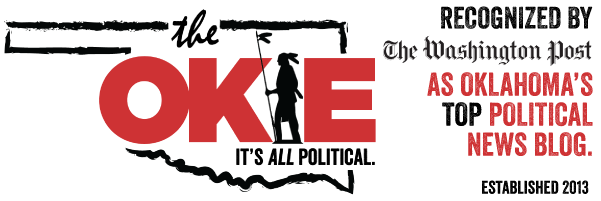OCPA Releases Annual Budget Book
Think Tank Releases Proposed State Budget
OCPA proposes a state budget that respects Oklahomans’ family budgets
OKLAHOMA CITY (May 7, 2014) – The Oklahoma Council of Public Affairs (OCPA) released its annual proposed budget book, which contains recommendations for the state’s appropriated budget for the upcoming fiscal year.
OCPA’s state budget provides Oklahomans with lower taxes and a more efficient, effective government by dedicating citizens’ hard-earned dollars to the core functions of government.
According to the most recent Comprehensive Annual Financial Report (CAFR), Oklahoma’s total state tax collections reached an all-time high, as did total personal income tax collections, total sales tax collections, and total state government spending. According to state officials, total revenues and total spending are also on pace for a record for the current fiscal year.
This OCPA budget includes an across-the-board cut of the top personal income tax, lowering the top personal income tax rate from 5.25 percent to 4.75 percent, without raising anyone’s taxes or cutting one dollar in funding for education, transportation or public safety. Further, this proposed tax cut follows through on policymakers’ promise of tax relief beginning January 1, 2015, without gimmicks.
“Oklahoma citizens would see an average tax cut of $150 as a result of this proposal,” said Jonathan Small, vice president for Policy at OCPA. “This will allow more capital to remain in the private sector. It also fosters a more attractive climate for entrepreneurs, job creators, families and individuals. This will boost the local economy and would allow Oklahoma to remain competitive in the race for jobs and economic growth.”
Oklahoma is sandwiched between Kansas and Texas, both with lower personal income taxes. Texas levies no penalty on work.
OCPA’s recommended tax cut can be achieved by savings from reductions in spending on non-essential areas of state government. Such areas include: reforming Medicaid to produce better health outcomes at a lower cost, reducing overpayments for state employee health benefits, ending political earmarks and ending giveaways to nonessential state agencies and private industries that don’t need taxpayer dollars.
“Oklahoma is in a fierce competition with surrounding states and the nation for entrepreneurs and job creators. It is critical that Oklahoma finally implement common sense spending reforms,” said Michael Carnuccio, president at OCPA. “That means reducing unnecessary expenditures, responsibly funding those areas of government that taxpayers consider to be core functions, and making policy changes that will encourage growth in Oklahoma’s economy.”
The OCPA budget proposal also includes recommendations to implement the health insurance reforms adopted by Oklahoma County which is saving employees and taxpayers hundreds of thousands of dollars a year. If Oklahoma implements these reforms it will save the state more than $20 million annually.
The proposal responsibly increases funding to support reforms within the state Department of Human Services, and maintains the state’s commitment to road and bridge improvements.
OCPA’s proposal also allows for the state to carry over an additional $9 million in savings to the following budget year, along with a balance of $535 million in the state’s Rainy Day Fund.
“The state has yet to pass a fiscally responsible budget,” said Small. “This proposed budget does just that.”
For more information on the OCPA proposed budget book or to review the wasteful spending top 10 list, visit www.ocpathink.org.
###

